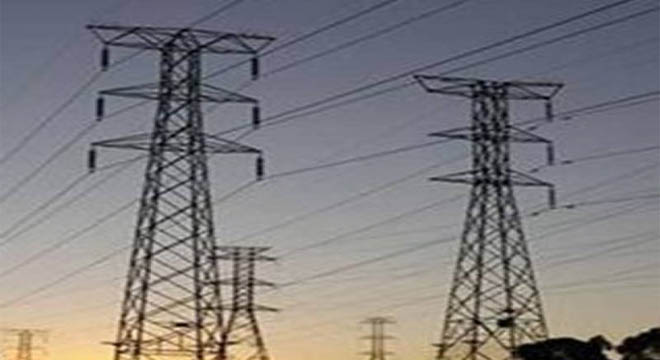ISLAMABAD – The NA Standing Committee on Power Monday deferred the amendment in the Nepra Act, which would have empoweedr the government to impose new surcharges on the electricity consumers, saying the inefficiency of the power distribution companies (Discos) should not be passed on to the consumers in form of surcharge and the government should explicitly narrate the various purposes of its levying.
The National Assembly Standing Committee on Power, which met under the chairmanship of Chaudhry Salik Hussain, MNA, deliberated on the Bill “The regulation of Generation, Transmission and Distribution of Electric Power (Amendment) Bill, 2020”. The Committee had sought answers from the Power Division on the clauses relating to the imposition of surcharge and opined that there is ambiguity in the collection of surcharges by the Discos and by the federal government.
Salik Hussain and members said that cross subsidy be eliminated and each Disco should have its own tariff based on its cost structure and Aggregate Tariff Cost (ATC) loss level. The chairman observed that if the Ministry is to impose surcharge it should only be for existing stock of circular debt and it may be levied as a flat kwh/hr across all Discos and consumers and not for some specific Disco. For the surcharge, government of Pakistan should explicitly narrate the various purposes and the inefficiency of the DISCOs should not be passed on to the consumers in form of surcharge. The ministry should in clear cut terms state how it intends to segregate the future periodic tariff increases, determined by NEPRA from time to time. The ministry was also asked to brief the Committee on the “Circular Debt Management Plan”. The chairman pointed out that as people representative; he is interested to know the impact of the bill on the masses. The bill was deferred for the next scheduled meeting with the direction to give rationale/justification for the imposition of surcharge through legislation.
Power Secretary Ali Raza Bhutta said that there is a uniform tariff policy across the country. The federal government would make changes in tariff policy only with the approval of the Council of Common Interests (CCI), secretary Power said, adding that policy-making is the prerogative of the Council of Common Interests.
The current law about tariff needs some clarifications which government is making, Secretary Power said.
If the government should impose a surcharge, it should have the powers in the policy; he said, adding that the government will have the power to impose surcharges in two terms. He said that government would be able to impose a surcharge for public sector power projects only.
Chairman Committee raised the question whether government would be able to impose surcharges like late payment surcharge to recover cost of incompetence and inefficiency from the consumers.
Committee member Shazia Marri expressed serious concerns over absence of law secretary from the meeting of parliamentary body. She also opposed the imposition of surcharge. Chairman Committee said that the government is obliged to make this amendment to include things of public interest. “We are scared of the word surcharge, Ghulam Bibi Bharwana commented. “I am not in favor of imposing surcharge,” she said. Everyone in the committee agrees that the amendment of surcharge will be misused, said the chairman of the committee. Secretary power said that the circular debt was more than Rs 2.3 trillion. Secretary power said that the government did not impose a surcharge more than 10% of the unit price. The government is charging Rs 1.40 per unit surcharge based on the current electricity prices.
Those who use 100 units will have to pay an additional Rs 140 on account of surcharge. However, secretary said that government would not charge poor consumers. The committee was informed that the government is also considering increasing the number of units from 50 to 100 for lifeline consumers.
Those who do not have money for household rations are sold such expensive electricity, Shazia Murree said. Secretary Power said that this is not a lucrative business for the government. Secretary finance said that government had imposed a surcharge to build Neelam Jhelum. In the last 12 years, he said that government had collected Rs. 62 billion from the consumers through Neelam Jhelum project.
To date, the government has imposed only Neelam Jhelum surcharge. He said that ECC had approved to abolish Neelam Jhelum surcharge from next month. He said that Rs 3 billion of Neelam Jhelum will be returned to the consumers in the next bills. The Secretary Power failed to convince the Power Committee to impose a surcharge.
Secretary Finance said that they are not hiding anything from the committee, adding that if circular debt is eliminated, it will be beneficial. He said that surcharge will improve recovery. He said that country’s debt was unstable. The Committee gave its nod of approval to the budgetary proposals amounting to Rs. 143.13 billion relating to Public Sector Development programme (PSDP) for financial year 2021-22, of the Ministry of Energy (Power Division).
On the country wide power breakdown, the committee was informed that Inquiry Committee had held officials working on Guddu Power Station responsible for countrywide blackout. Power Division had received three reports of the recent blackout incident in the country, Ali Raza Bhutta said. He said that Power Division would send these reports to the Federal Cabinet. Bhutta further said that they would brief the committee on blackout in the country in next meeting. He said that the problem occurred due to human error in Guddu power station that led to the tripping of rest of the country’s power system. Secretary said that the work on Guddu power station was going on but the officials did not follow SOPs during maintenance work.
Due to a mistake, the Guddu power plant tripped and there was a complete blackout, he said, adding that at the time of the blackout, the power consumption in the country stood at 10,000 megawatts. Apart from the management, Inquiry committees had also nominated those responsible for not improving the NTDC system, he added. The management had not taken actions required to improve the system of the NTDC, the secretary said.
Briefing the committee, K Electric officials said that losses in the city had dropped from 36% to 19%. They said that 75% of sites were loadshedding free. Soon the city will be 95% loadshedding free, KE officials said, adding the 900-megawatt unit will be operational in May.
Follow the PNI Facebook page for the latest news and updates.









